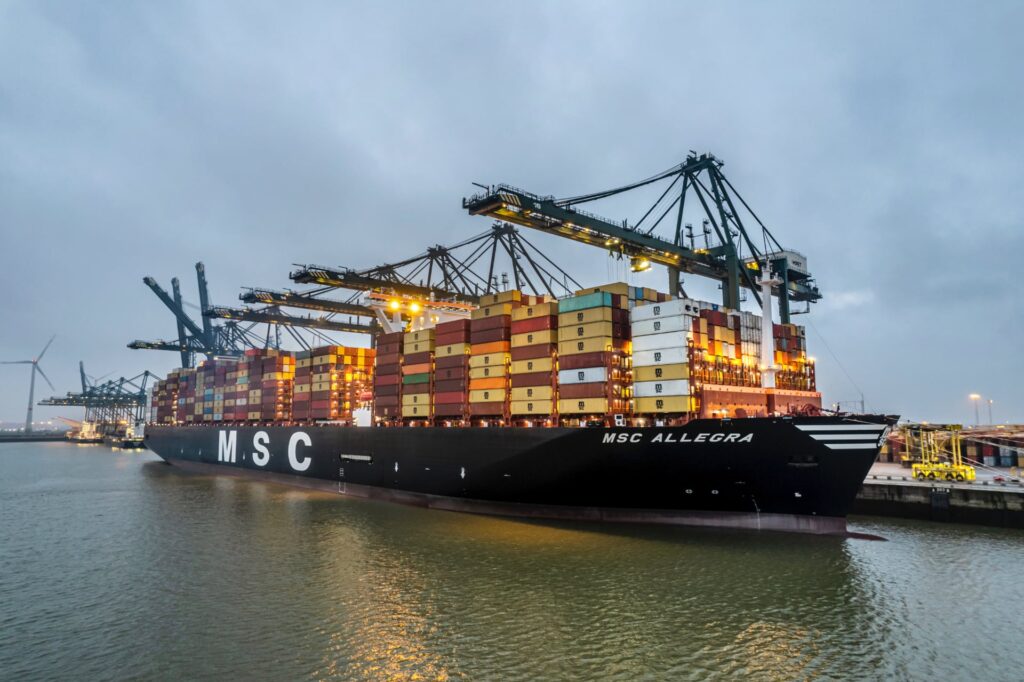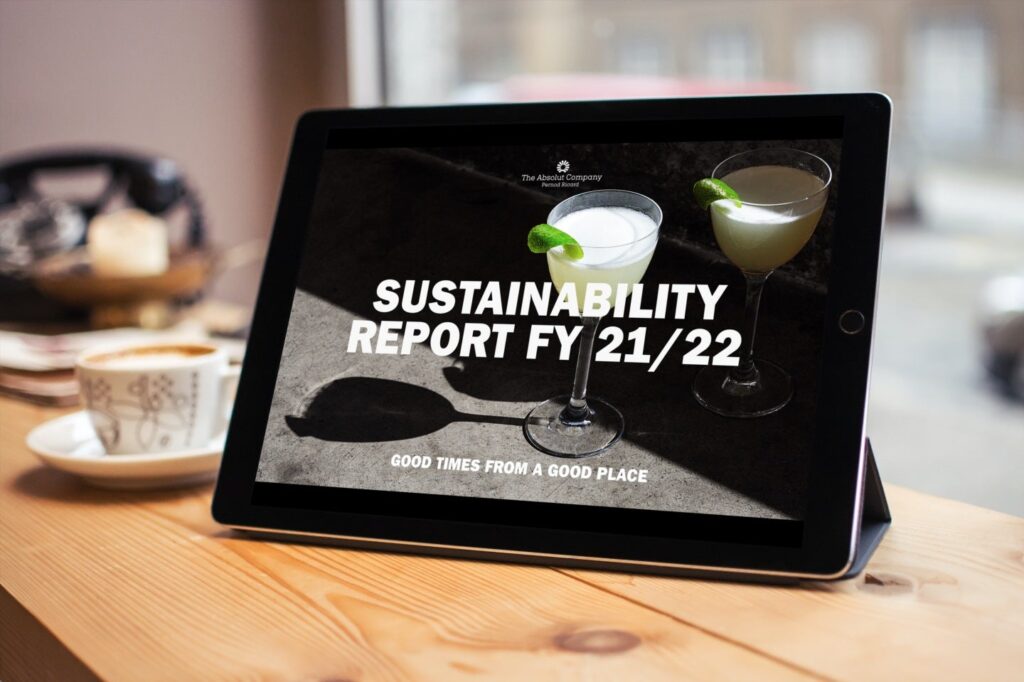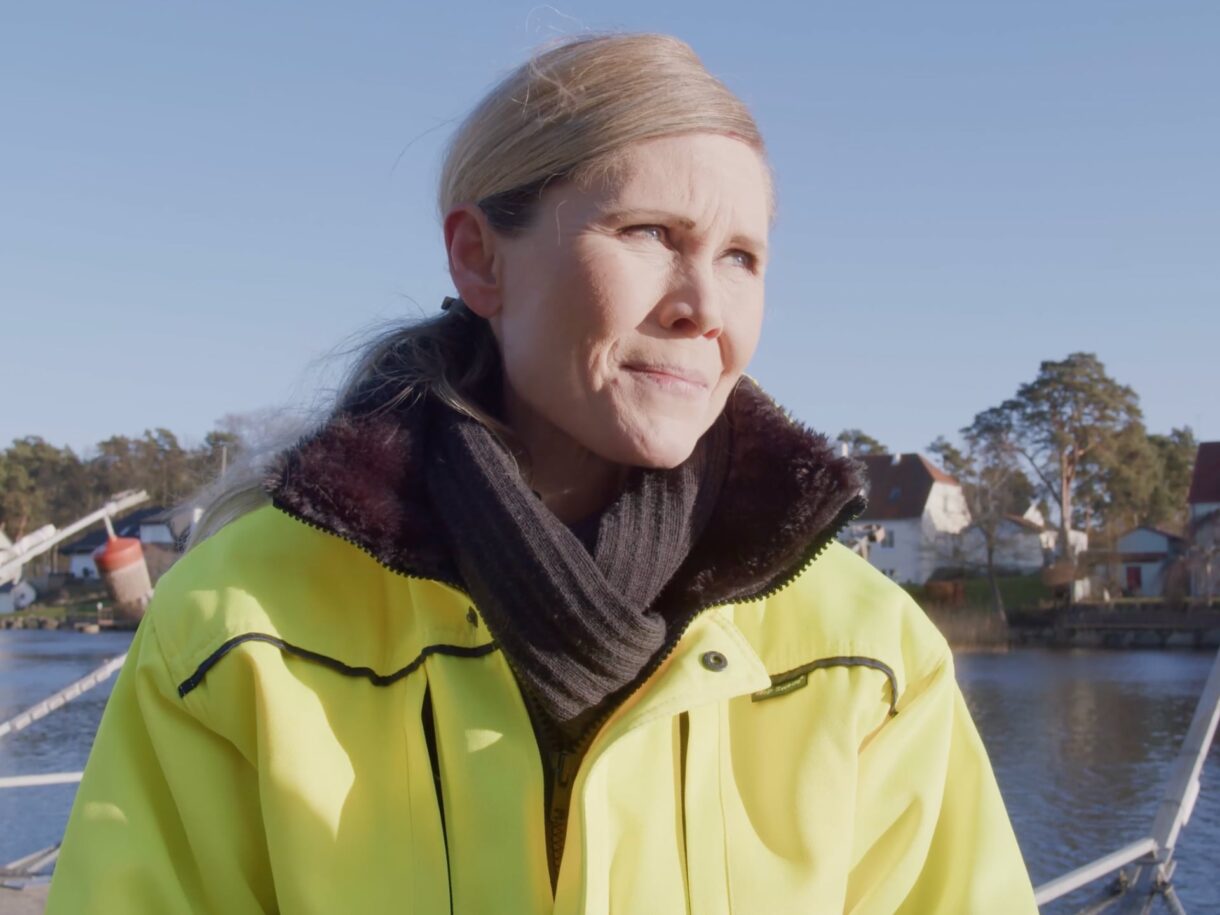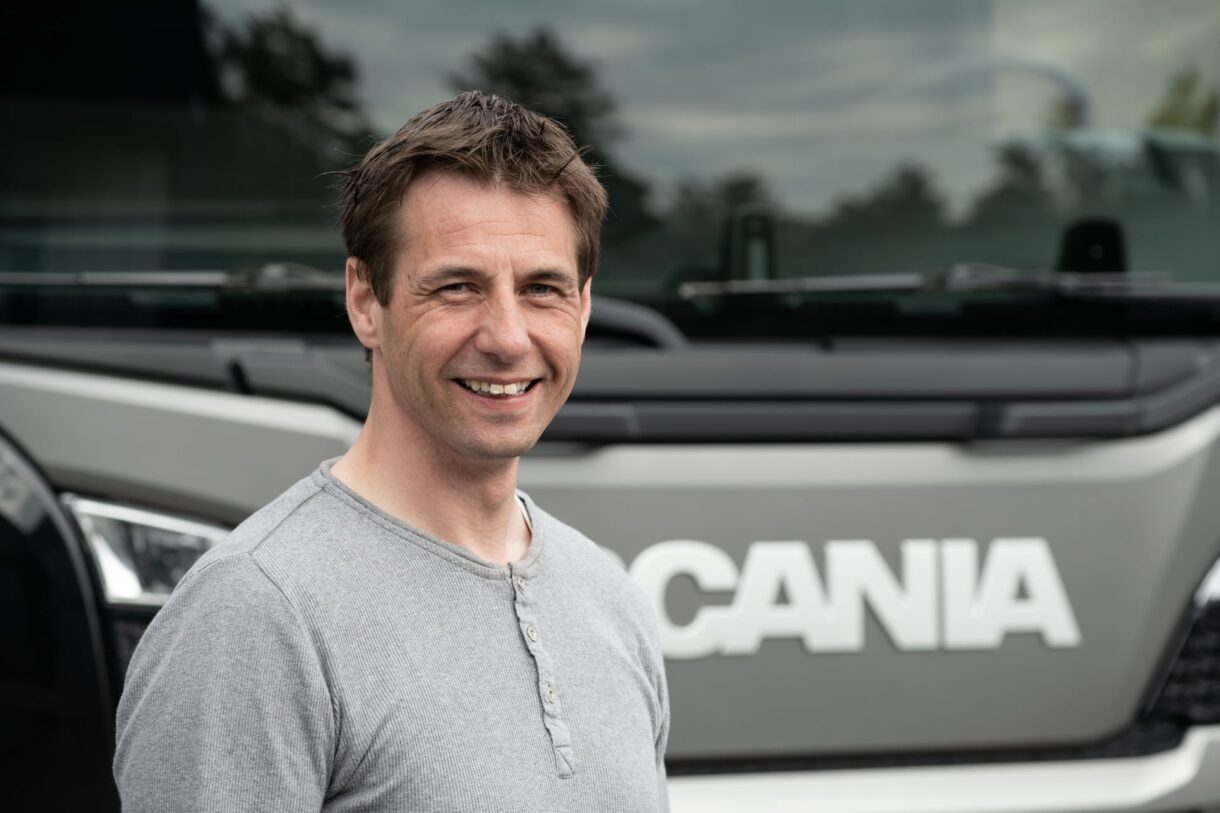
Sustainable logistics: Absolut rises to the transportation emissions challenge
Passionate about sustainability, Petra Åkerblom feels immense pride in Absolut’s ambition to reduce carbon emissions for transports in the company – but she is frustrated too that the transport industry does not act as one in the drive to make tangible change.
As Senior Customer Service & Logistics Manager at The Absolut Company (a role she has held for 16 years) and member of Pernod Ricard’s freight organisation, Petra works with global transport procurements and is involved in the development of sustainable transports across the Pernod Ricard group. Yet sometimes it feels like mission impossible, Petra Åkerblom jokes.
Absolut has reduced its emissions radically within production and packaging but when it comes to transport, it is more difficult to control the emissions for reasons out of its hands. For example, lack of ownership is one barrier – Absolut doesn’t own the boats, trucks, and trains. Instead, it works with some of the biggest shipping lines, forwarders and truck companies in the world – and so it has to rely heavily on the transporters to change their ways.
You can’t just talk about sustainability – you must act too
Despite being a global brand, it can be a challenge for The Absolut Company to influence transport companies into implementing more sustainable solutions. “The ships that we load our containers on can hold up to 25,000 TEUS (20 containers).
Not even our yearly volume is big enough to fill up a ship of that size, so our ability to drive change on our own is limited, says Petra. “That is why we have joined the “Clean Shipping Index”, where several major players are included, to jointly push for more sustainable transports.”

While the development of engines and alternative fuels for trucks has come a long way in recent years, most large container ships still run on crude oil. New IMO 2020 regulation to reduce the Sulphur oxides emissions in marine fuel is a positive move, but it has not yet eradicated the problem completely.
Petra is passionate about her role. It is, as she says, never dull and she speaks enthusiastically about the new Liquid Natural Gas (LNG) vessel it will test this Spring on a route to Korea. By running the ship on natural gas, it will radically reduce its emissions. Petra notes that there are also some other new initiatives available such as Eco Delivery where you sponsor a vessel running on biofuel, which reduces CO2 emission immediately, at the source, rather than simply offset emissions.
“When we get out and actively support the use of other more sustainable fuels for shipping, we hope to inspire others as well. You can’t just talk about sustainability – you must act too, and that includes using solutions that are available on the market now,’ she adds.
Trains and trucks
The Absolut Company has tested intermodal transports, where the transport of goods in a single unit or vehicle using two or more modes of transport. In our case, we shipped in three parts: truck, train and then truck again. Unfortunately, during the trial, Absolut experienced a spate of thefts, in one case a whole container even disappeared and so the trial was halted.
Petra says: “The most important thing to look at when it comes to sustainable transports is load optimization. The better we load, the fewer transports needed. It’s also cost-efficient. So, it’s a win both for the climate and the economy. There is nothing worse than shipping air. This is something we’ve worked very hard to avoid. And today, most of our shipments are optimized.”
It was a proud moment for Petra when Absolut transitioned to HVO in Sweden
Truck transport is much easier to influence and improve than ocean freight. The Absolut Company has for a long time only purchased freight on environmentally classified trucks, to minimize air pollution. The availability of biofuels and alternative fuels are still very limited in Europe, but we’re constantly looking for new solutions. It was a proud moment for Petra when Absolut transitioned to HVO (hydrotreated vegetable oil) on all deliveries within Sweden.
“That was a milestone. We’re continuing the development and will find even better solutions. Alternative fuels are developing, even more, LNG cars are coming. And EVs, that would be amazing!”
The challenge of sustainable trucking is that no long-distance trucks are running on electricity today. Petra adds: “The ones on the market can drive short distances only. We, for example, are shipping all the way to Spain, so at the moment, it is not a solution for us.”
The challenge is also financial – making it profitable to use new types of vehicles and fuels. Transporting goods on trucks that run on alternative fuels is more expensive than using the old ones that the industry is used to. And in Europe today, there are not enough companies that are willing to pay the extra cost.
“To make a haulage contractor invest in trucks running on natural gas that are capable of running long journeys, say from Sweden to the Netherlands, there must be customers willing to pay for the transport both ways. If not, it will simply transport air back to Sweden. There is no financial nor sustainable rationale in that. And that’s the challenge, which is why we need the rest of Europe to catch up so we can find more solutions faster and easier.”

Download the report
This, and more, is from the Sustainability Report for fiscal year 21/22. It’s available on this site, as well as in PDF form if you prefer (27 MB).


